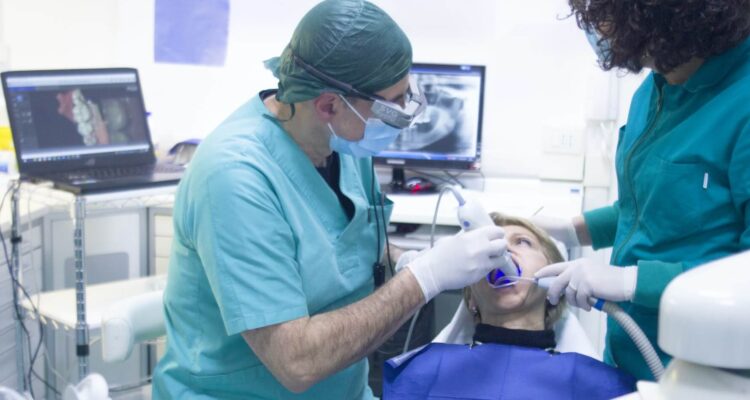
TMJ pain, or temporomandibular joint disorder, refers to any pain in the jaw or facial muscles, or even the ears and neck due to abnormal functioning of the temporomandibular joint (TMJ). TMJ pain can be severe enough to disrupt your ability to work and lead a normal life. Fortunately, there are several methods of treatment that can help you manage TMJ pain so that you can go about your business as usual. Here are four of the best tips from a TMJ specialist in Albuquerque to help manage TMJ pain.
Don’t Tense Your Jaw:
The first step toward minimizing your pain is minimizing jaw tension. You can do so by making sure that you aren’t clamping your teeth or clenching your jaw when you’re not trying to. Relax and let your jaw fall open until it rests comfortably on its own, and then think about keeping it there for as much of your day as possible. If you tend to clench your jaw while sleeping, try using a night guard; they keep your teeth from grinding together at night and will help minimize damage to your TMJ.
Practice Good Posture:
According to a TMJ specialist in Albuquerque, the muscles of your jaw, face and head can all be strained or stressed by improper posture. The effects can lead to a wide range of conditions, including jaw pain (TMJ). When you sit at a computer all day or drive for long periods, you are likely causing strain on your body. Properly aligning your head and neck while sitting or standing will allow you to relieve some of that stress and help you maintain a healthy body.
Refrain From Using Chewing Gums:
Chewing gums are no less than pain in a packet for those suffering from TMJ. You may want to chew gum as it helps in keeping you alert and fresh all day, but you should refrain from using chewing gums if you suffer from sleep apnea and/or suffer from migraine or headache as most of these disorders get aggravated by chewing gum. A TMJ dentist in Albuquerque suggests not to use bubble gum as it is full of sugar and can be quite hard on your jaw muscles.
Try Acupressure:
This alternative treatment uses pressure points, or acupressure points, on your face and head to help alleviate tension. These pressure points are similar to those used in acupuncture. As with acupuncture, acupressure can be done by a practitioner, but you can also do it yourself. This at-home treatment is easy and will give you temporary relief from TMJ pain as well as help heal some of your symptoms.
TMD or TMJ pain may be embarrassing and difficult to manage, but don’t let it get the best of you! If you’re experiencing symptoms such as jaw pain, clicking sounds when opening or closing your mouth, or difficulty chewing, it would be ideal to opt for TMJ treatment in Albuquerque from an expert.



